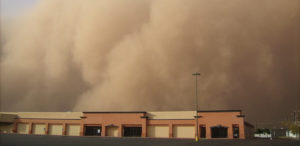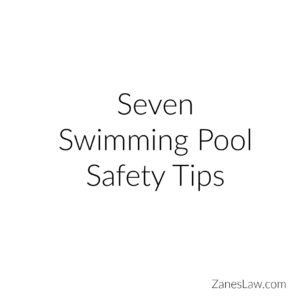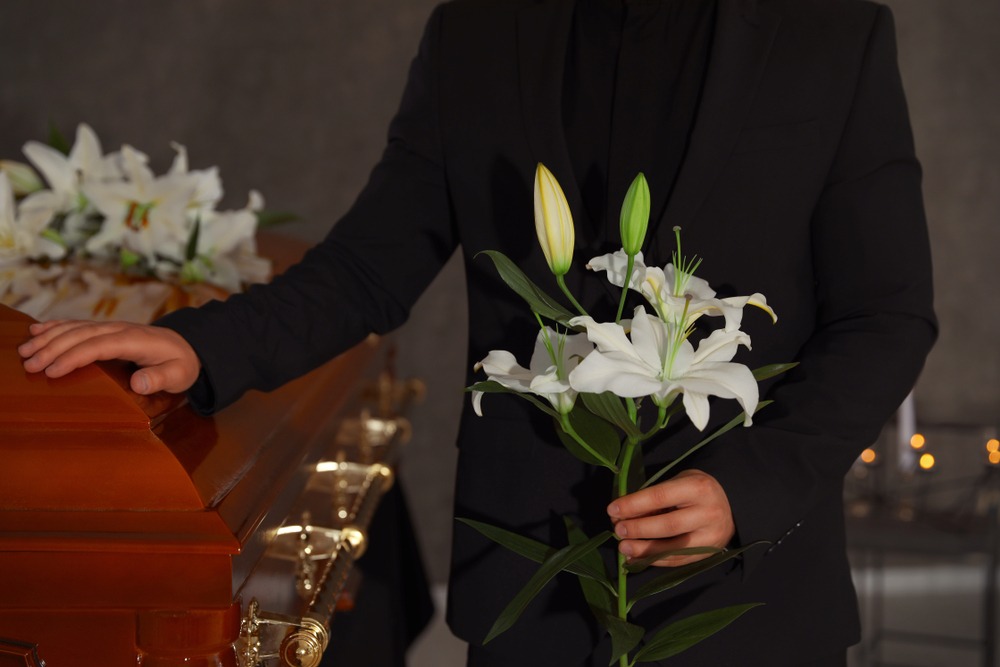![]() Contact Us (866) 499-8989
Contact Us (866) 499-8989
How Hard Is It to Prove Wrongful Death?
- The Elements of a Wrongful Death Claim
- The Benefits of Using a Wrongful Death Lawyer
- Gathering and Analyzing Evidence Is Crucial to Proving Negligence in a Wrongful Death Lawsuit
- Defenses to a Wrongful Death Claim
- Wrongful Death Cases Involving Government Entities
- Wrongful Death Lawsuit FAQ
- Talk to a Wrongful Death Lawyer
- Home
- FAQs
- Wrongful Death
- How Hard Is It to Prove Wrongful Death?
Wrongful death refers to a situation where an individual dies due to the negligence or misconduct of another person or entity. Proving wrongful death can be a complex and difficult process, as it requires a thorough investigation and a strong legal case.
The Elements of a Wrongful Death Claim
To prove wrongful death, the following elements must be present:
- Duty of care: The defendant (the person or entity being sued) had a duty to exercise reasonable care to prevent harm to the deceased.
- Breach of duty: The defendant breached their duty of care by acting negligently or intentionally causing harm.
- Causation: The defendant’s actions were the direct cause of the deceased’s death.
- Damages: The deceased’s family has suffered financial or emotional damages as a result of the death.
For a free legal consultation, call (866) 499-8989
The Benefits of Using a Wrongful Death Lawyer
Navigating the legal system and proving wrongful death can be overwhelming, especially during a time of grief. Hiring a wrongful death lawyer can help maximize your claim and make the process easier for you and your family.
A wrongful death lawyer can help:
- Investigate the incident: A lawyer will conduct a thorough investigation to gather evidence and build a strong case.
- Determine liability: A lawyer will help determine who is responsible for the death and whether there are multiple parties liable.
- File the claim: A lawyer will handle the legal paperwork and file the claim on your behalf.
- Negotiate with insurance companies: A lawyer will negotiate with insurance companies to ensure that you receive fair compensation for your damages.
- Represent you in court: A lawyer will represent you in court, if necessary, and advocate for your rights.
Gathering and Analyzing Evidence Is Crucial to Proving Negligence in a Wrongful Death Lawsuit
If you want to win a wrongful death case, evidence gathering is essential. All of the essential parts of a negligence claim—duty, breach, causation, and damages—must be proven by the plaintiff. This is where a personal injury lawyer can prove to be a great benefit.
An attorney will understand the burden of proof and will have the ability and resources to gather evidence efficiently. Examples of evidence that could be presented are:
Medical Documentation
The victim’s medical records and autopsy reports may shed light on the manner in which they were injured or killed, as well as the care they received and the circumstances surrounding their passing.
Physical Evidence
The victim’s belongings and evidence from an accident scene can both serve as important pieces of physical evidence.
Expert Testimony and Evaluation
Testimony from medical professionals, engineers, or accident investigators could shed light on the circumstances surrounding the incident.
Witness Testimony
Statements from others who were there during the accident or incident that ultimately led to the victim’s death can be extremely helpful in establishing what actually happened.
Police Reports and Documentation
Reports from the scene of an accident, the police report, and documentation from other authorities can shed light on what happened before the death.
Due to the fact that certain evidence can be lost or destroyed over time, it is essential that the process of gathering evidence should begin as soon as possible following the incident. Though you are grieving, it’s important to work with an attorney to begin the process of gathering evidence to build a solid claim.
Click to contact our personal injury lawyers today
Defenses to a Wrongful Death Claim
Defendants in such cases may raise a variety of defenses to try to avoid liability. A personal injury lawyer will likely foresee these arguments and work to combat these claims. Some of the most common defenses include:
Contributory Negligence
The defendant could say that the death of the victim was caused in part by the victim’s own carelessness. For example, if a car hits a pedestrian who was jaywalking, the driver might say that the pedestrian’s actions caused the accident.
Risk Assumption
The defendant may contend that the victim was aware of and consented to the possibility of harm or death when engaging in a certain activity. For instance, they agreed to the risk of injury or death when they went hunting.
Statute of Limitations
The defendant could say that the wrongful death claim was filed too late and is therefore barred by the statute of limitations. The amount of time you have to take legal action is generally between one and two years, but many factors can impact the deadline. This is where you need to be cautious. Allowing the time to run out on your case can bar you from collecting any damages.
No Breach of Duty
The defendant could say that they did not break their duty of care to the victim. The defense may raise this point if they argue that the victim died from a preexisting condition.
No Causation
The defendant may contend that neither their conduct nor their inactions contributed to the victim’s passing. This could be used if the defendant says that the death was because of a medical condition that was already present.
It is important to note that these defenses may not be successful in all cases, and it is up to the court to decide whether they apply in a particular case. This is why it is crucial to have evidence.
Complete a Free Case Evaluation form now
Wrongful Death Cases Involving Government Entities
Cases involving public entities may be more complicated than those involving private individuals or businesses. Due to the theory of sovereign immunity, governmental bodies are frequently exempt from being sued. Some states, such as Arizona, have abolished this doctrine, allowing lawsuits to be pursued against state government entities.
The concept of sovereign immunity does have several exceptions. For instance, wrongful death lawsuits against public institutions may be made under certain conditions under the laws of various states. The federal government has also waived its sovereign immunity in certain circumstances.
It is significant to note that the procedure for filing a claim against a government body may differ from the procedure for bringing a claim against a private person or business. Additionally, there may be restrictions on the amount of damages that can be obtained in a wrongful death lawsuit against a government body.
Wrongful Death Lawsuit FAQ
Here are a few of our most frequently asked questions.
Who Can File a Wrongful Death Claim?
In most cases, the deceased’s spouse, children, or parents can file a wrongful death claim. If the deceased had no surviving family, the claim can be filed by the executor of the deceased’s estate.
How Long do I Have to File A Lawsuit?
Each state has a statute of limitations for filing wrongful death claims. It’s important to contact a lawyer as soon as possible to ensure that your claim is filed within the time frame allowed by law.
What Types of Damages Can Be Recovered in a Wrongful Death Claim?
Damages that can be recovered include medical expenses, funeral expenses, loss of income and support, loss of companionship, and emotional distress.
Can a Wrongful Death Claim Be Settled Out of Court?
Yes, many claims are settled out of court through negotiation with the defendant’s insurance company. However, if a settlement cannot be reached, the case will go to trial.
Talk to a Wrongful Death Lawyer
Proving wrongful death can be a difficult and complex process, but with the help of a wrongful death lawyer, you can maximize your claim and ensure that your rights are protected. It’s important to act quickly and contact a lawyer as soon as possible to ensure that your claim is filed within the time frame allowed by law.
Funeral costs, accident-related medical bills, lost wages resulting from the untimely death of a spouse or parent, forfeited inheritance or pension benefits, and non-economic damages like loss of consortium, loss of companionship, and emotional distress may be recovered.
Contact our legal team at Zane’s Law. We can explain your legal options and help you decide whether bringing a wrongful death claim makes sense for your particular circumstance.
Call or text (866) 499-8989 or complete a
Free Case Evaluation form
 Infographic: Surviving a dust storm: Do you know what to do?
Infographic: Surviving a dust storm: Do you know what to do?
Doug Zanes shares advice on surviving a dust storm. Giant dust storms, popularly called “haboobs,” make for spectacular photos that everyone has seen shared on social media. Dust storms
 Infographic: Swimming Pool Safety Tips
Infographic: Swimming Pool Safety Tips
As summer approaches, my entire Zanes Law team wants swimming pool safety to be something that everyone in Arizona thinks about. All swimming pool accidents are 100% preventable, so as summer
 Nightclub Safety – 4 Solid Tips
Nightclub Safety – 4 Solid Tips
Four Tips That Will Help You Stay Safe Nightclub safety is important because there are real dangers that we seldom think about. What could be the common denominator in being injured or killed by a
 Seven Swimming Pool Safety Tips
Seven Swimming Pool Safety Tips
Seven Swimming Pool Safety Tips From an Arizona Personal Injury Lawyer Every year thousands of people are injured in accidents that are completely preventable. So with summer right around the corner,
Receive a Free, No-Obligation, Case Evaluation Now



